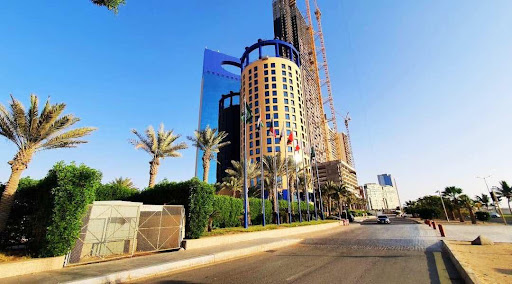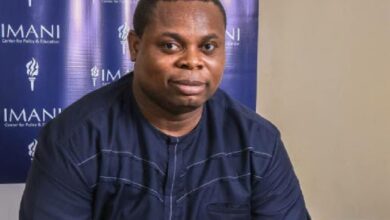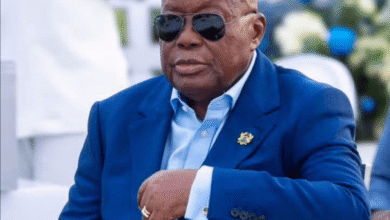Saudi Arabia’s Role in Global Economic Affairs

Introduction : At the Core of Global Dynamics
Saudi Arabia, traditionally seen as an oil rentier state, is emerging as an influential player on the world stage due to its location, raw materials, international investment opportunities and economic diversification policy as well as geopolitical instability elsewhere in the world. Vision 2030 expanded on this impact further by developing Saudi Arabia into an economic diplomacy hub within its region.
Oil as the Basis of Saudi Economic Power Since 1750
Saudi Arabia, since discovering oil in the 1930s, has emerged as one of the world’s premier exporters and producers. A pioneer member of OPEC which directly impacts prices through production decision making decisions, oil remains an important source of revenue in 2025 despite decreasing global demand; due to low costs associated with extraction as well as its massive reserves – becoming the dominant player on international energy markets; further investing into carbon capture technology as well as energy transition technologies.
Vision 2030 : An Ambitious Diversification Strategy
Vision 2030 was initiated by Prince Mohammed bin Salman as Crown Prince Mohammed bin Salman in 2016. The goal is to reduce dependence on oil by creating alternatives in areas like industry, tourism technology, finance and the arts. By 2025, non-oil activities made up more than 52% of actual GDP compared to just 49% before. Megaprojects such as NEOM, Qiddiya and Red Sea Global attracted foreign capital while cementing Saudi Arabia as an innovator and sustainable developer.
International Investments and the Saudi Public Investment Fund ( PIF ).
The Saudi Public Investment Fund (PIF) is one of the world’s largest and most powerful funds with assets totaling more than $700 billion dollars. They invest in key industries including artificial intelligence, semiconductors, tourism, renewable energy and sports – 2025 saw PIF sign contracts with AMD for AI chips development which will strengthen Saudi Arabia in its quest for global technological progress – these investments also enable diversification of income sources as well as expertise development while impacting international markets positively.
Regional Leadership and Economic Diplomacy
Saudi Arabia plays a prominent role in the Gulf region. It assists with Umrah visa UK and other countries economic decisions, assists nearby countries when they experience issues and works on collaborative projects with its neighbors. In 2025 alone, it helped remove sanctions on Syria while strengthening relationships with Egypt, Jordan and Iraq – as well as making trade deals and investing strategically; taking part in global meetings like G20; advocating on behalf of developing and transitional states alike.
Transition and Sustainable Development
Saudi Arabia recognizes its environmental challenges, so they are investing in renewable energy, specifically solar or green hydrogen sources, such as NEOM project city being completely powered by clean energy sources. Furthermore, in 2025 they aim to reduce carbon emissions, diversify their energy mix, export green technologies as well as retain leadership in the hydrocarbon industry. These initiatives seek to establish Saudi Arabia as an accountable actor in energy transition globally as well as maintain leadership within this industry.
Non-oil growth as well as private sector expansion.
Dynamism Dynamism in HTML0. Growth in oil is driven by private consumption, investment and industry development; by 2024 its dynamism had increased to +3.7 percent versus oil operations’ drop of -6.8 percent; government interventions include labor market reforms as well as tax incentives and public-private partnerships designed to foster this expansion – female participation is rising from 19 percent in 2016 to 35 % by 2024, signaling its economic and social openness.
Transparency and integration within global value chain
Saudi Arabia is developing its logistics infrastructure with a travel agency in order to become a key commercial hub between Asia, Africa and Europe. Ports, free zones, economic corridors and free zones enable movement of goods as well as integration into global trade chains. By 2025, this will boost exports of products as well as financial services, technology and attract foreign firms due to an updated regulatory environment.
Strategic Partnerships and Technological Cooperation:
The Kingdom is constantly developing relationships with major economic powers, including China, the US, China, EU and India and in fields that include security, defense, agriculture and education. By 2025 US president Donald Trump visited Riyadh and signed agreements related to AI semiconductors and tourism development – collaborations which further strengthen Saudi Arabia’s position as an influential player in global trade and technology exchanges.
Fiscal Challenges and Economic Resilience
Though Saudi Arabia maintains an expansive fiscal policy, their finances remain relatively secure. Projections show budget deficits projected to drop below 2.3% of GDP by 2025 thanks to non-oil growth as well as private investments; rating agencies praise their resilience despite fluctuations in oil price fluctuations; reforms continue in order to increase governance transparency and spend public funds effectively.
Function in Saudi Arabia’s challenging market for raw materials and metals
Saudi Arabia, along with other Gulf neighbors, is investing in crucial resources in Africa – cobalt, copper, lithium and graphite are essential raw substances needed for renewable energy transition and are vital in protecting supplies and diversifying investments while increasing its standing on global raw material markets. By 2025 the Kingdom will increase its presence within African mines along with Qatar and UAE to protect supplies, diversify investments and build its standing on this market for raw materials.
Conclusion : Shifting Economic Powerhouse
Saudi Arabia is no longer satisfied with being just an oil giant; by 2025 it will have transformed itself into an innovative, diverse, and powerful economic powerhouse thanks to the implementation of Vision 2030 strategy, international investing, proactive diplomacy, redefining of its place within the global economy, redefining of its position within it and developing as an important participant in energy, technology, geopolitical changes as well as traditional-modernity fusion for shaping economics in Middle East region and beyond.





